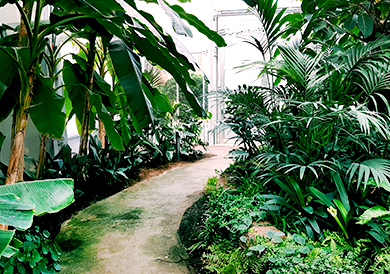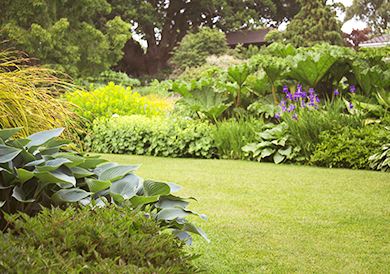PROJECT RATIONALE
Changes
In 2000, 67% of land cover in Sumbawa had >30% tree cover, but due to deforestation and land burning activities, we observed changes in weather. This may also cause soil degradation and drought in the surrounding area.

Project Areas
Farmers in the village of Marente on Sumbawa Island have for generations relied on the predictable rainfall of the rainy season to irrigate the rice crops, coffee plants and fish ponds that provide the majority of their household food consumption. However, over the past 10 years, reduced rainfall has begun to impact crop yields with significant reductions in the amount of rice, coffee and freshwater fish available for sale in markets. In 2023, Sumbawa district will also experience the impact of El Nino.

Climate Change Impacts/Effects
We Create Beautiful and Brighter Smiles
The decline in rice, coffee and fish production means that households have to spend more money to buy these foodstuffs to replace the food they usually produce themselves. This means less money is available for other expenses, including health and school costs. In addition, health and education problems began to emerge due to changes in diet, improper nutrition and financial difficulties.
Future
The changes that are expected to occur with the construction of the Sumbawa Permaculture Institute are as follows :
1.
Availability of facilities and infrastructure that support sustainability education.
2.
Implementation of integrated rice farming (mina padi), sustainable garden (permaculture), agroforestry and mangrove conservation methods.
3.
Establishment of a community empowerment program with the formation of local communities and superior village products in order to launch a circular economy.
4.
Get access and facilities for renewable energy.
5.
Able to run an active waste bank program and waste management independently and in an integrated manner.
GOALS & OBJECTIVES
Sumbawa Permaculture Goals :
01.
Reduce emissions and stabilize levels of greenhouse gases (greenhouse effects) that trap heat in the atmosphere.
02.
Ensuring that food production is not threatened, and enabling economic development to proceed sustainably.
03.
Strengthen home food security, improve well-being and capacity to anticipate, and respond to changes occurring in nature.
04.
Ensuring that sustainable activities do not only stop with the current generation by trying to raise the next generation who are aware and understand environmental issues and are able to think of solutions for the future.
Sumbawa Permaculture Objectives :
01.
Building Sustainable Education Facilities.
Build the facilities and infrastructure needed to implement sustainable education.
02.
Developing Sustainable Education Curicullum for Children, Teenager and Communities.
Create a sustainable education curriculum that can be integrated with the national curriculum and is easy to understand.
03.
Establish Sumbawa Permaculture Institution Class.
Organize training, educational classes, awareness workshops, meetings, and other outreach activities.
04.
Implement Sustainable Integrated Farming
Carry out sustainable farming activities using rice cultivation methods, intercropping, permaculture, biofloc ponds and the use of pesticides and natural fertilizers from the results of anaerobic fermentation of kitchen organic waste (Local Microorganisms and Eco Enzymes).
05.
Increasing Agroforestry program
Carry out planting on forest land and empty fields using agroforestry and MPTS (Multi Purpose Tree Species) methods where the results from MPTS will be processed by the group of women farmers that we foster.
06.
Implement Energy - Efficient Technology
Integrating solar panels and hydroelectric power plants for agricultural land and MSME production kitchens
07.
Community Empowerment by Circular Economy
– Carrying out community empowerment activities, by forming assisted farmers to optimize sustainable integrated farming methods with a wider scope.
– Forming groups of women farmers to process agricultural, plantation, fisheries and non-timber forest products into superior regional products that can be accepted on the export market.
08.
Establish Waste Management Processing
– Forming an active waste bank in collaboration with villages.
– Integrating poultry and BSF (Black Soldier Fly) to process remaining organic waste.
– Integrating a biodigester to process cow, buffalo and goat manure.
09.
Establish Home Food Security program
Carry out a home-based food security movement, where one family can have a small garden that is optimized as a food source and integrated with livestock that have a low level of care (free-range chickens, ducks and freshwater fish).
- FOR INSURANCE





